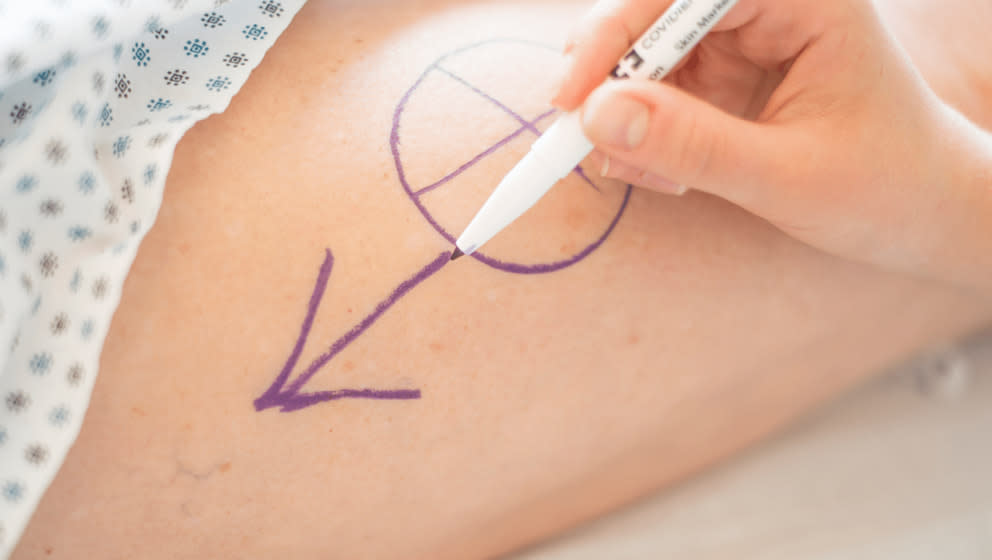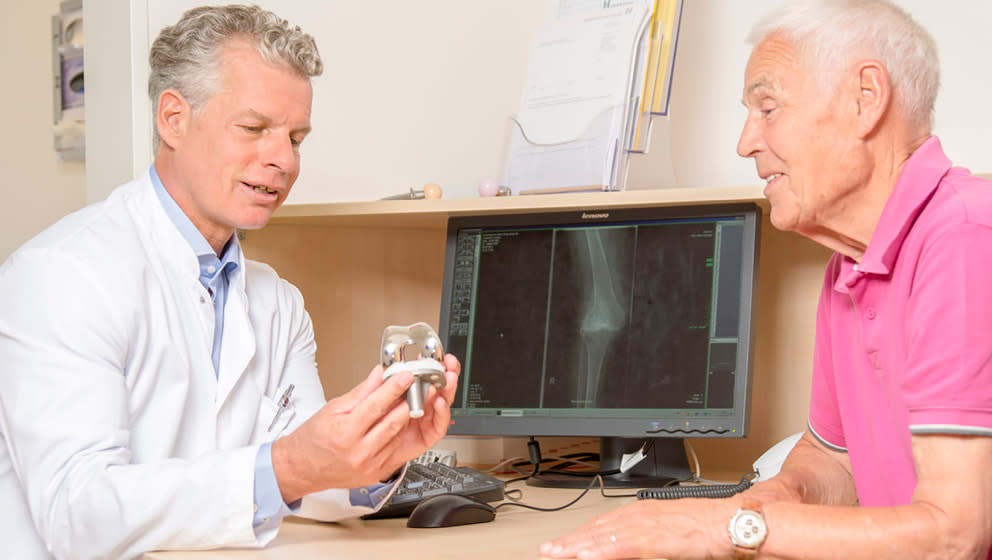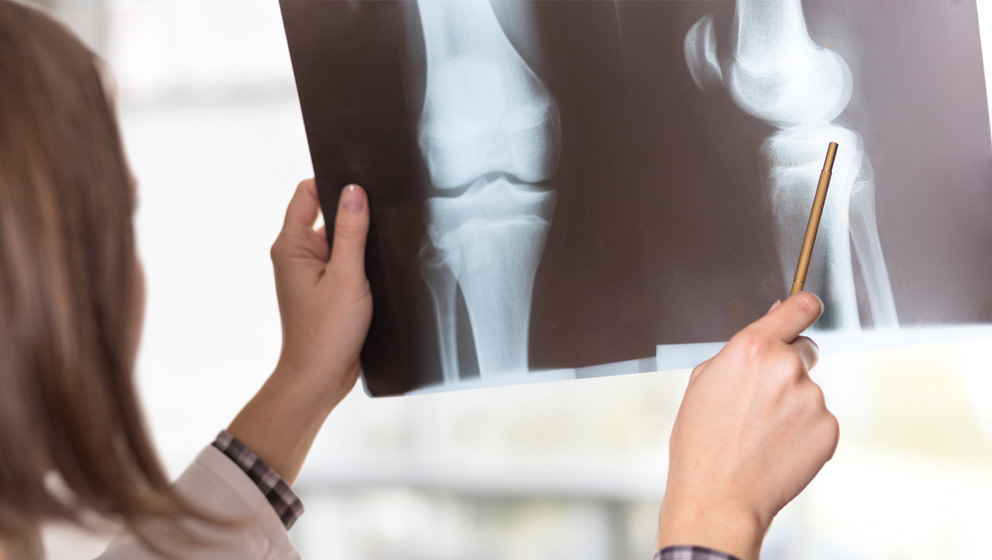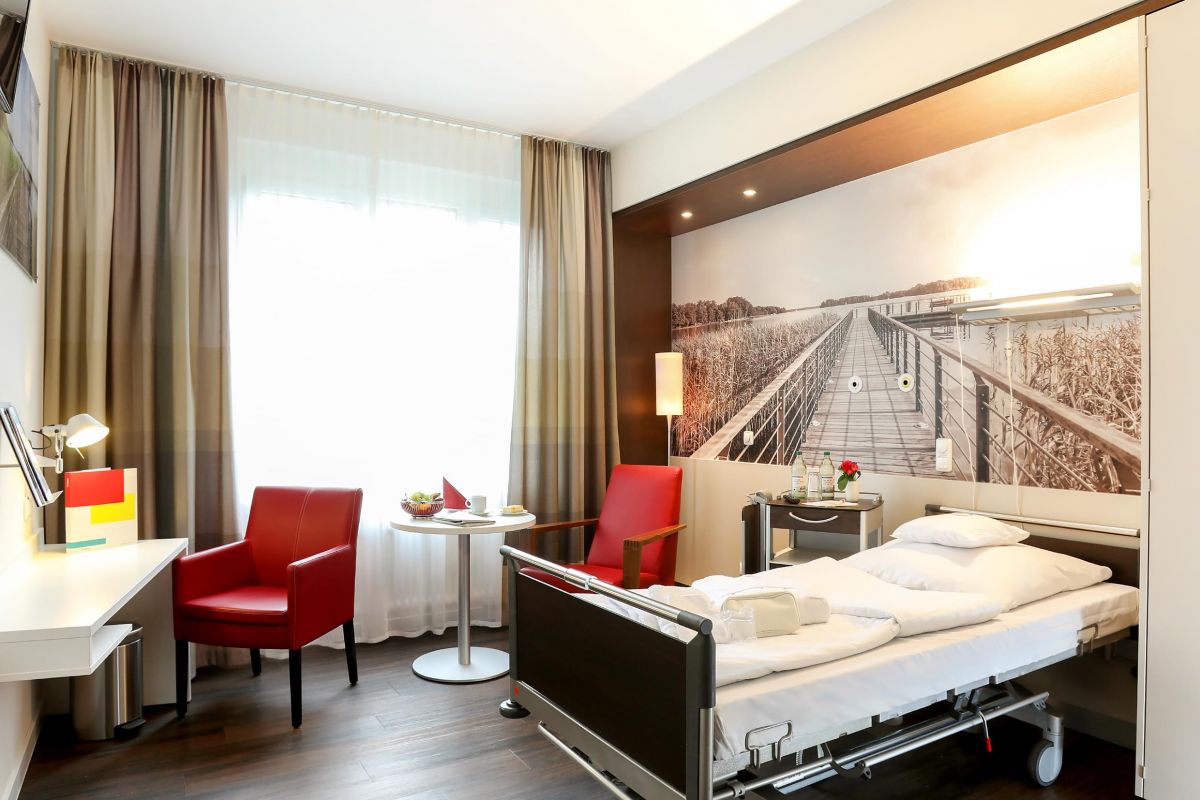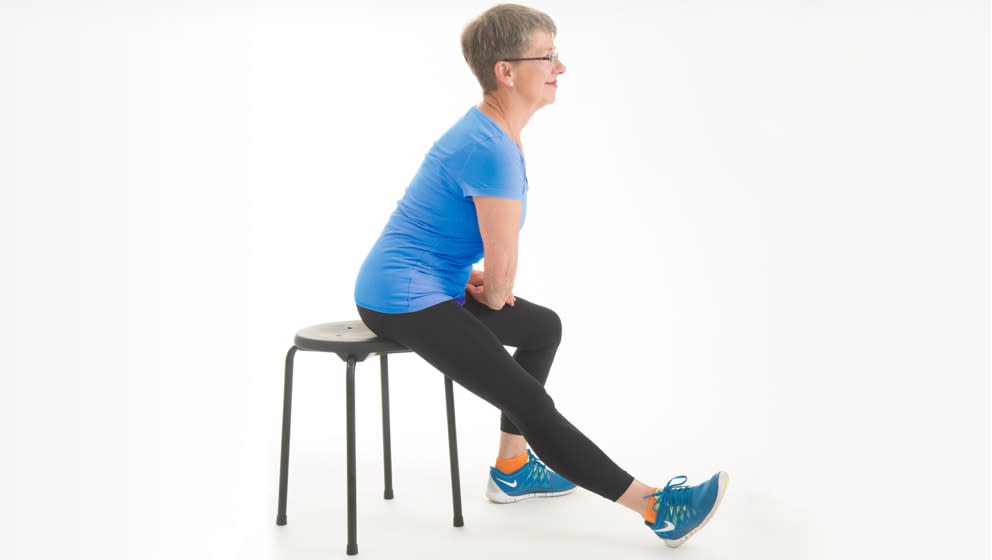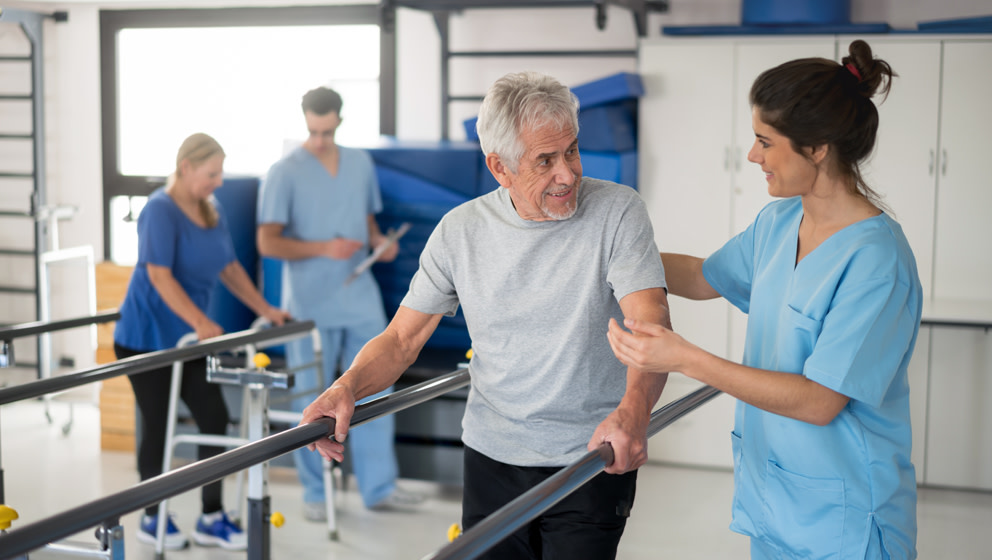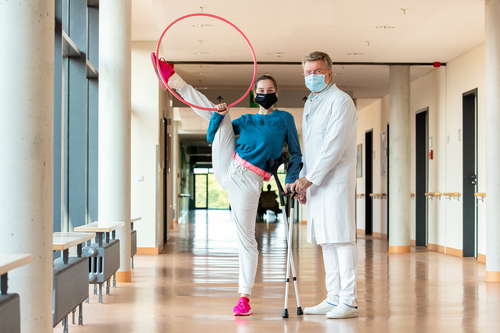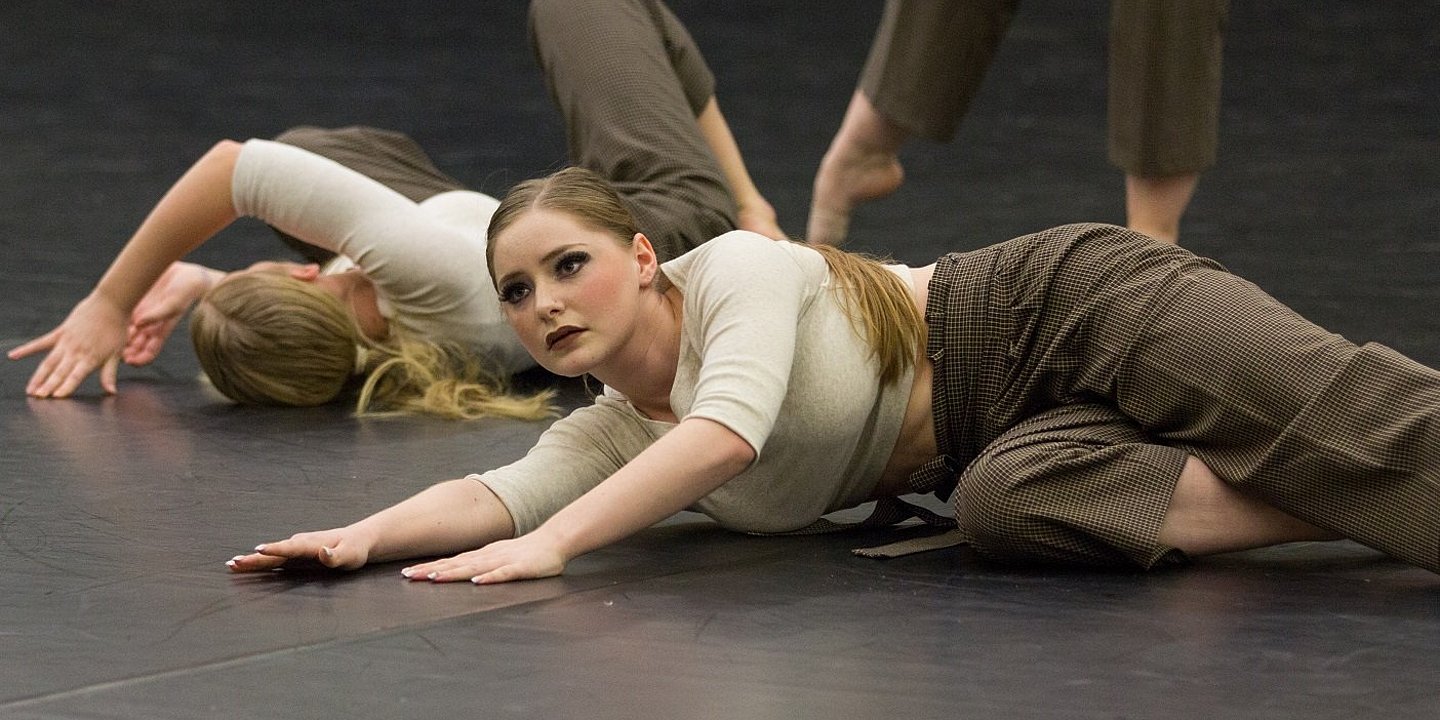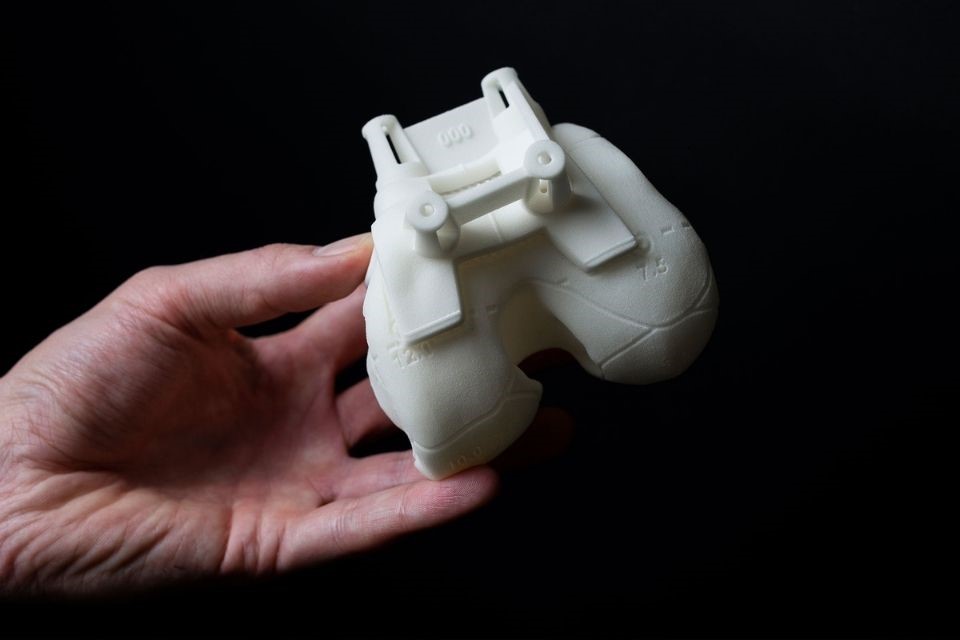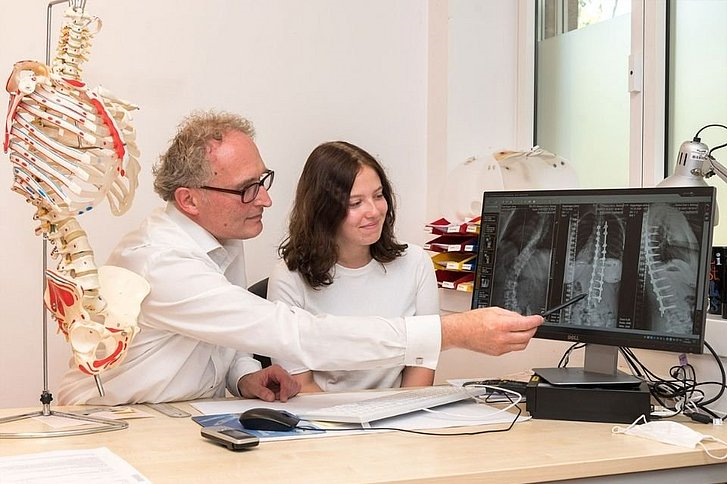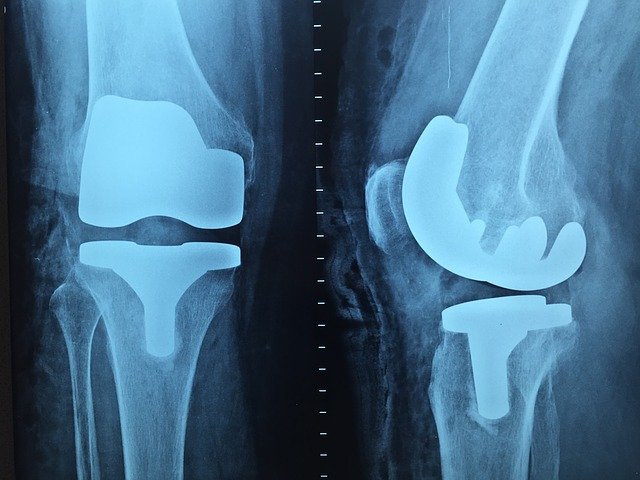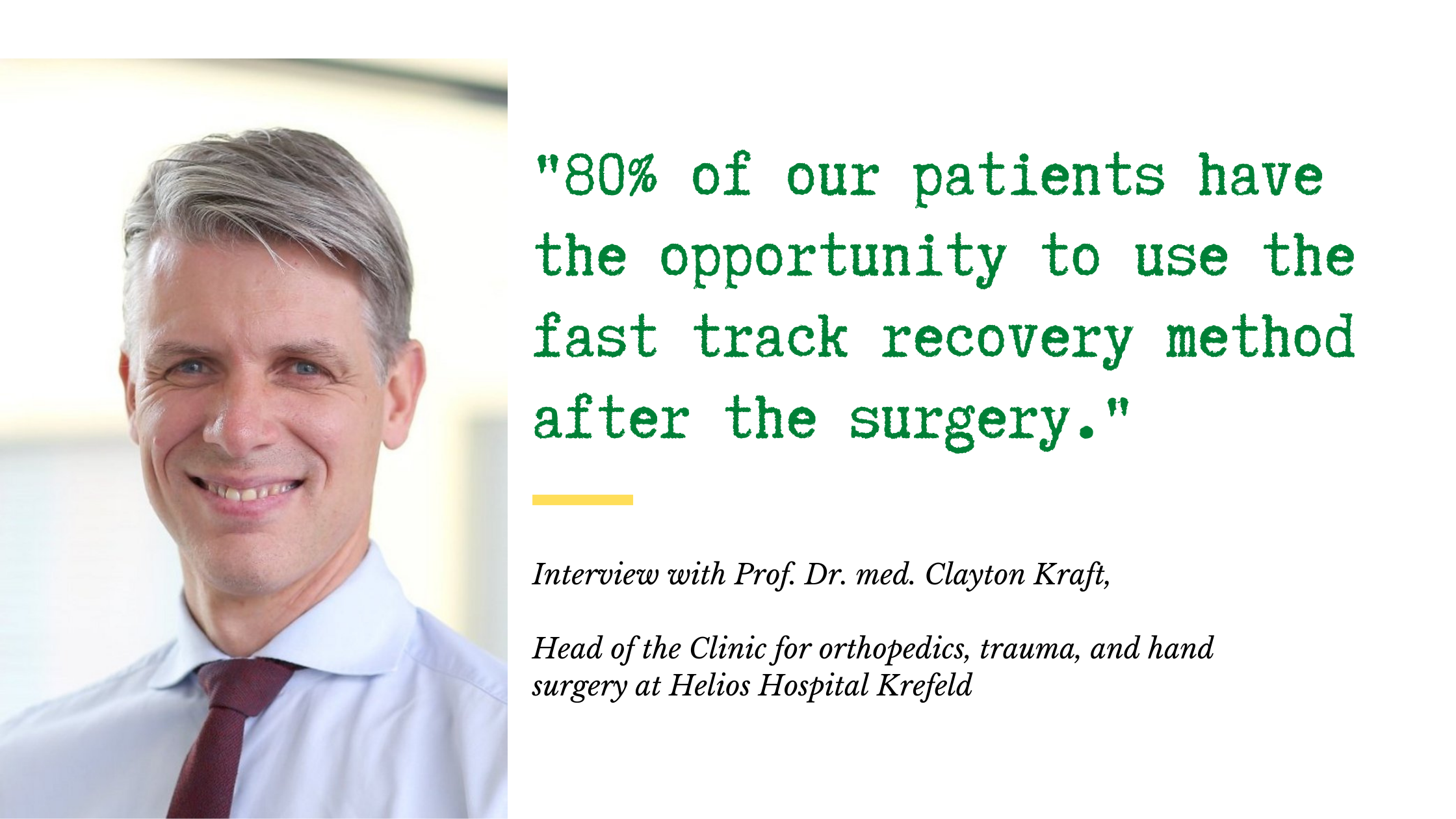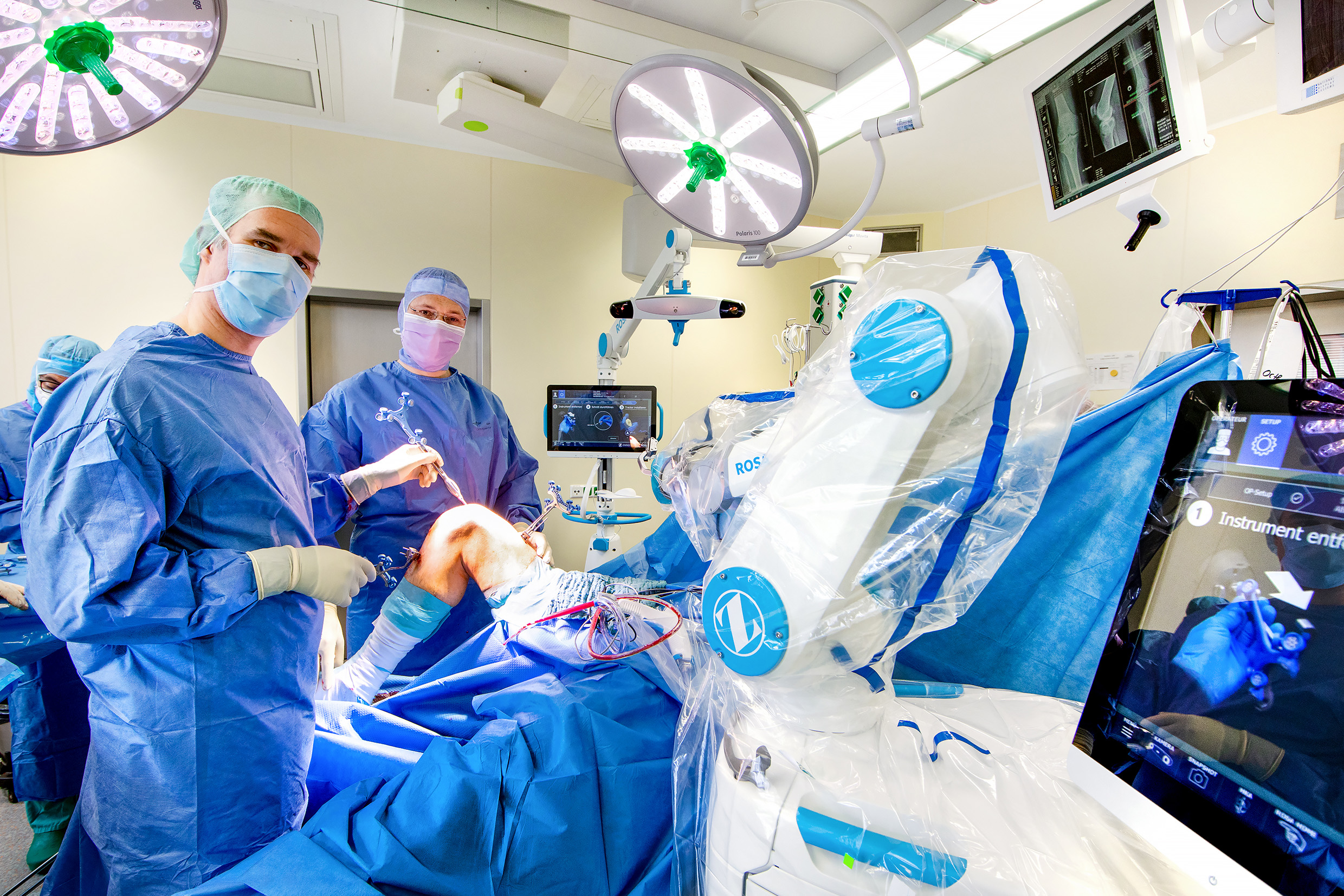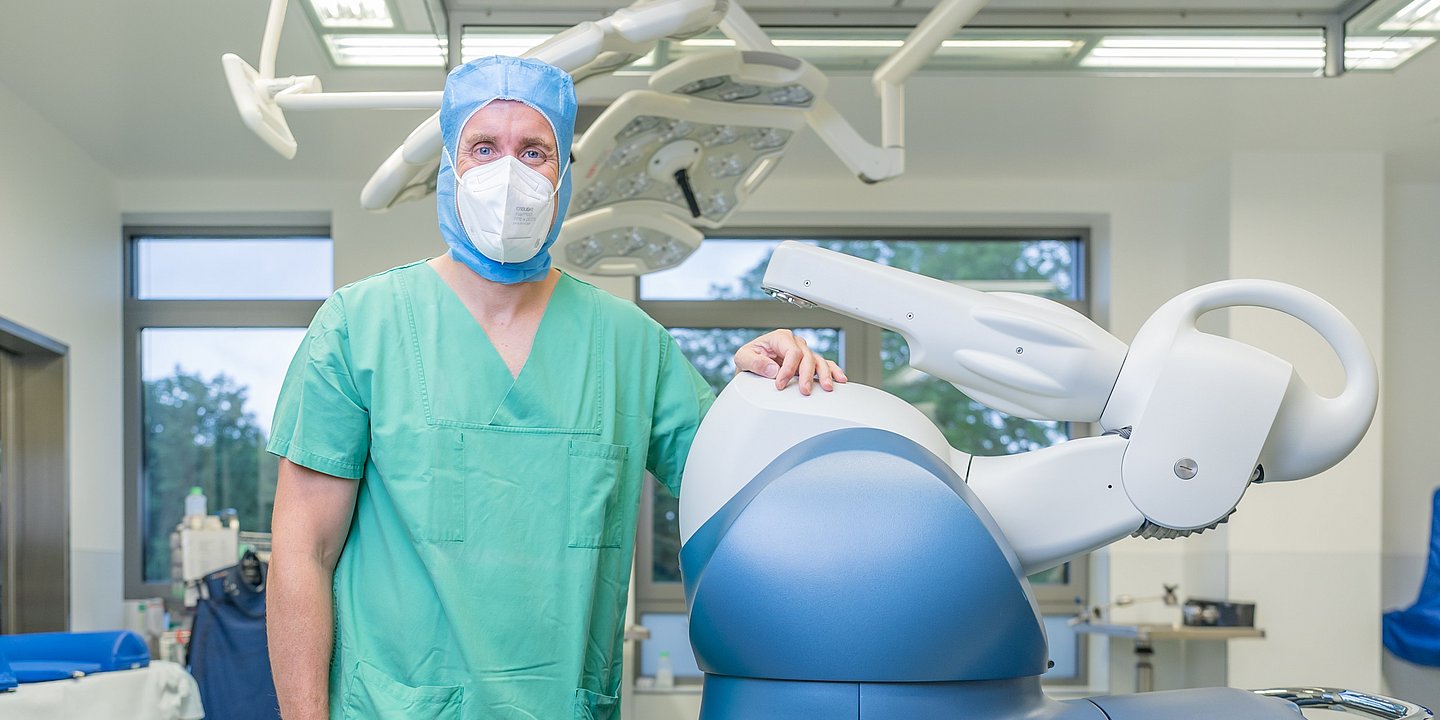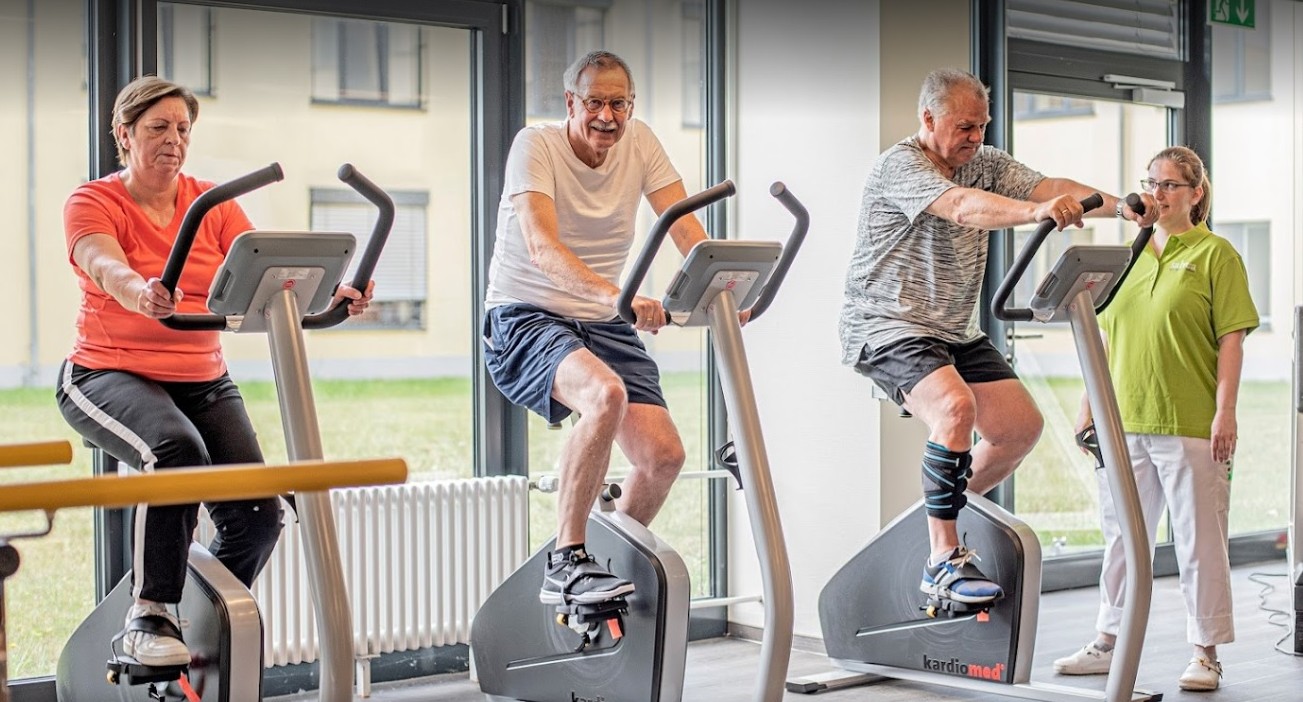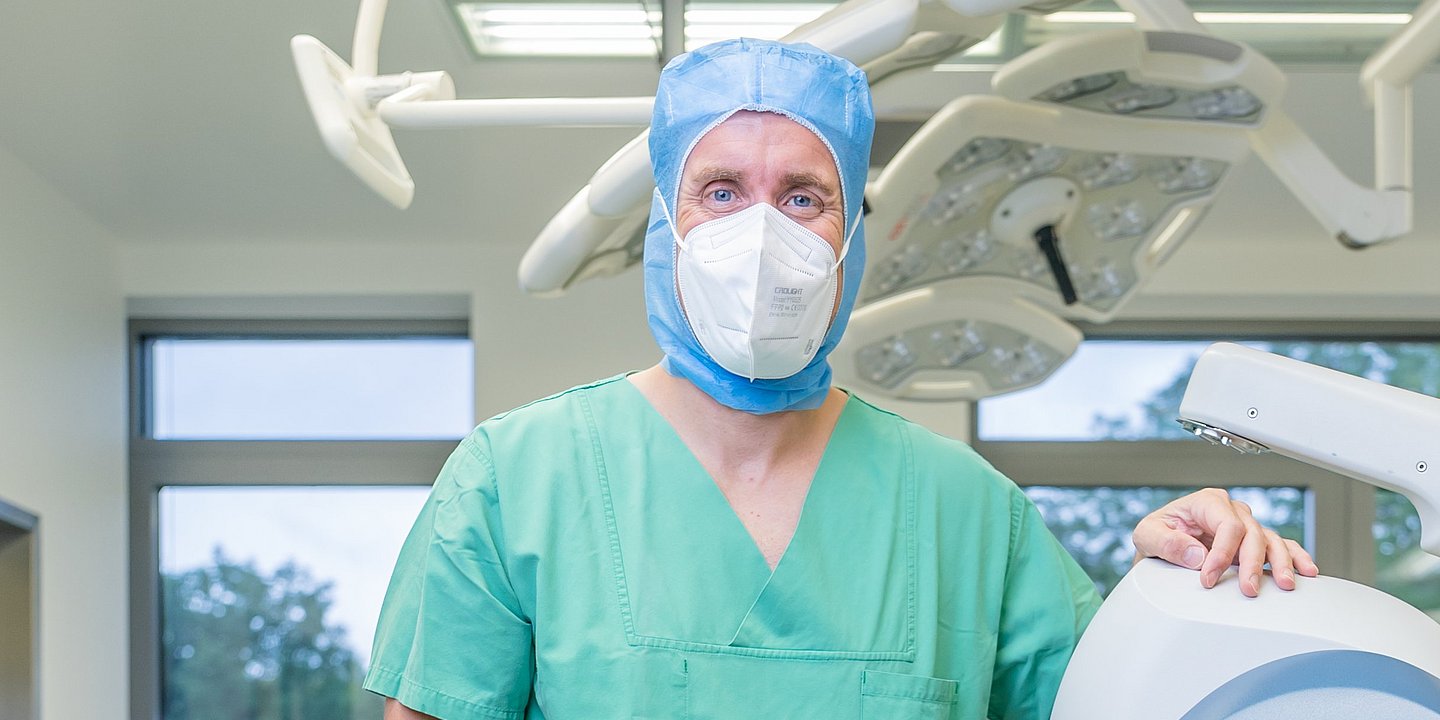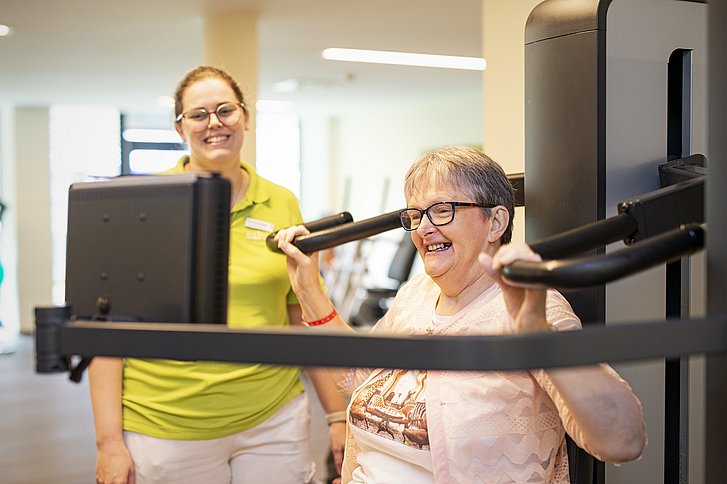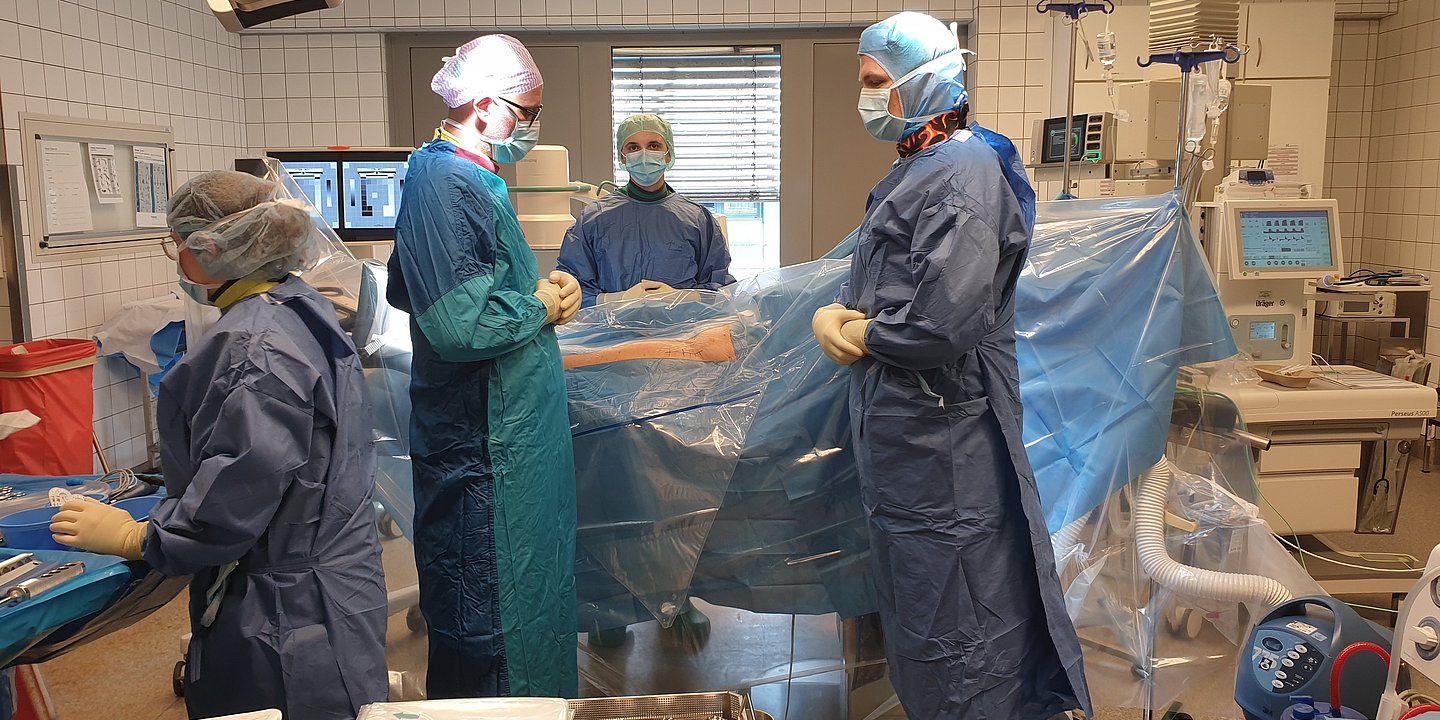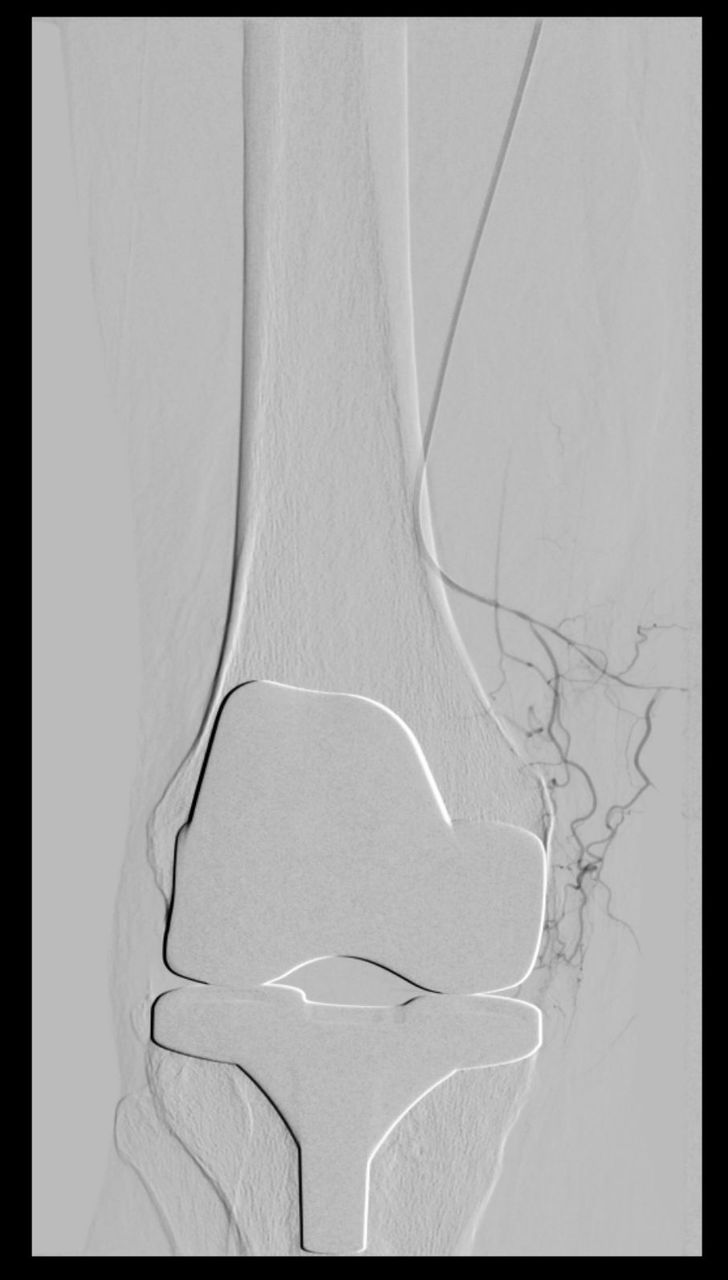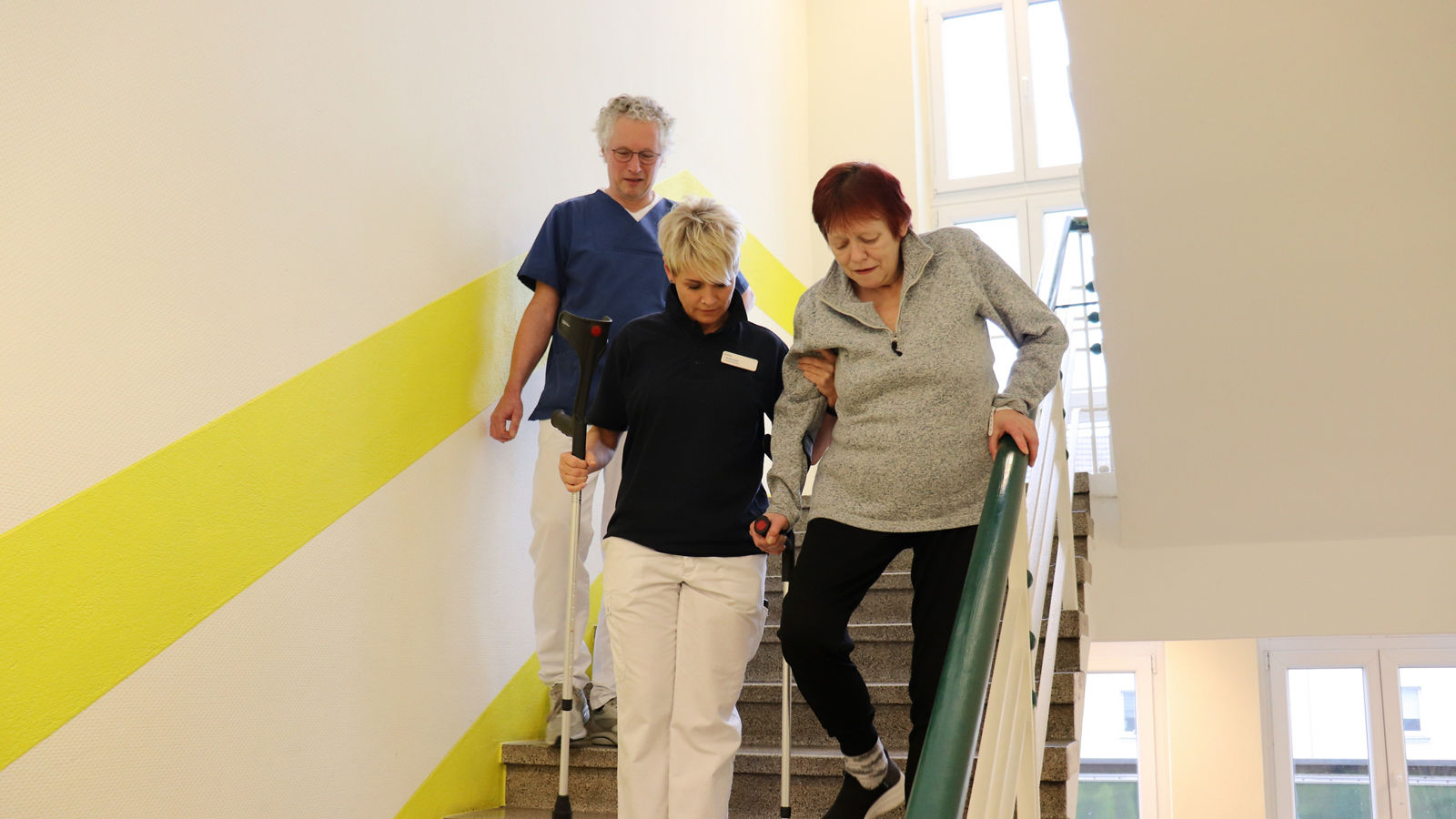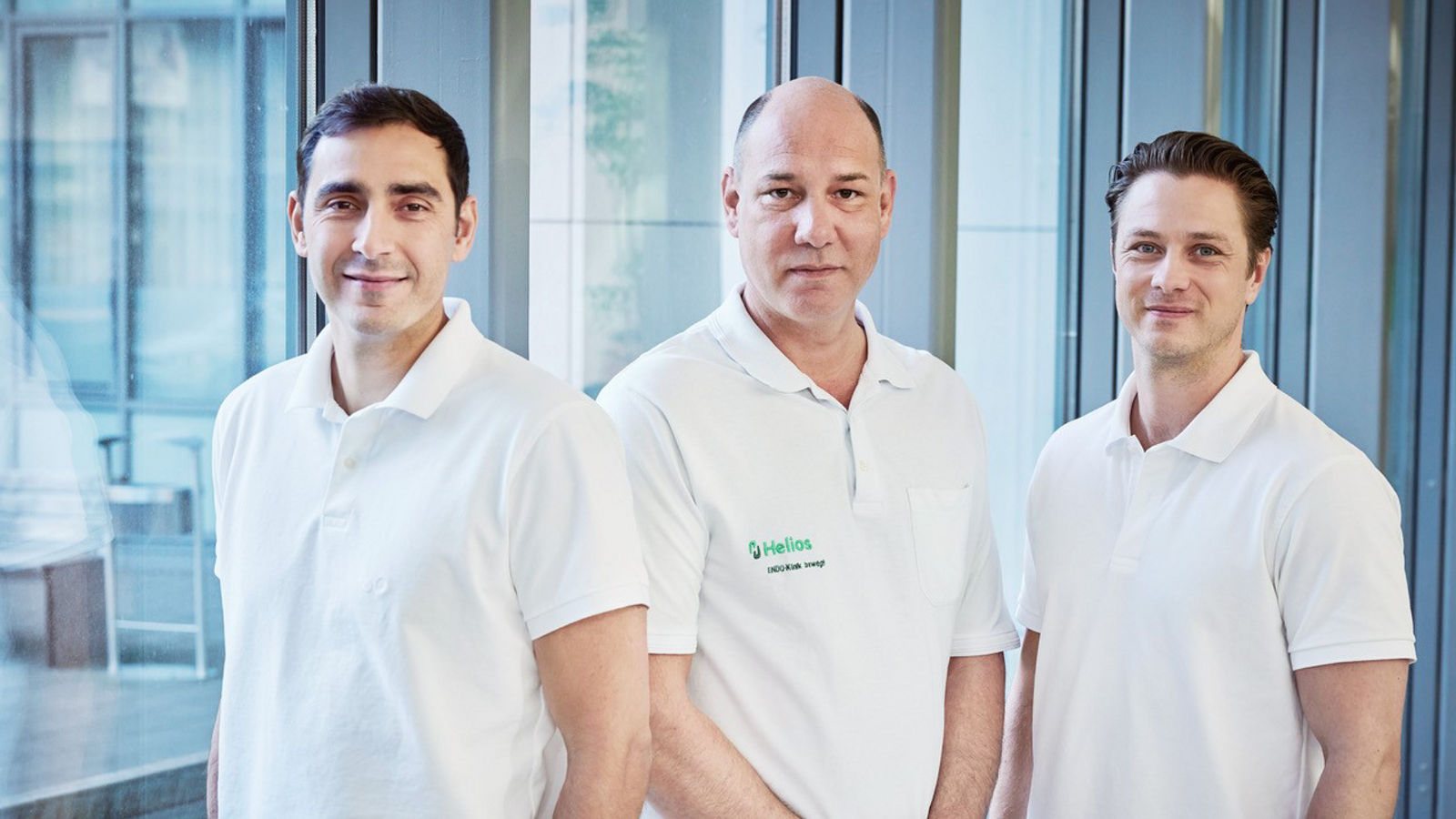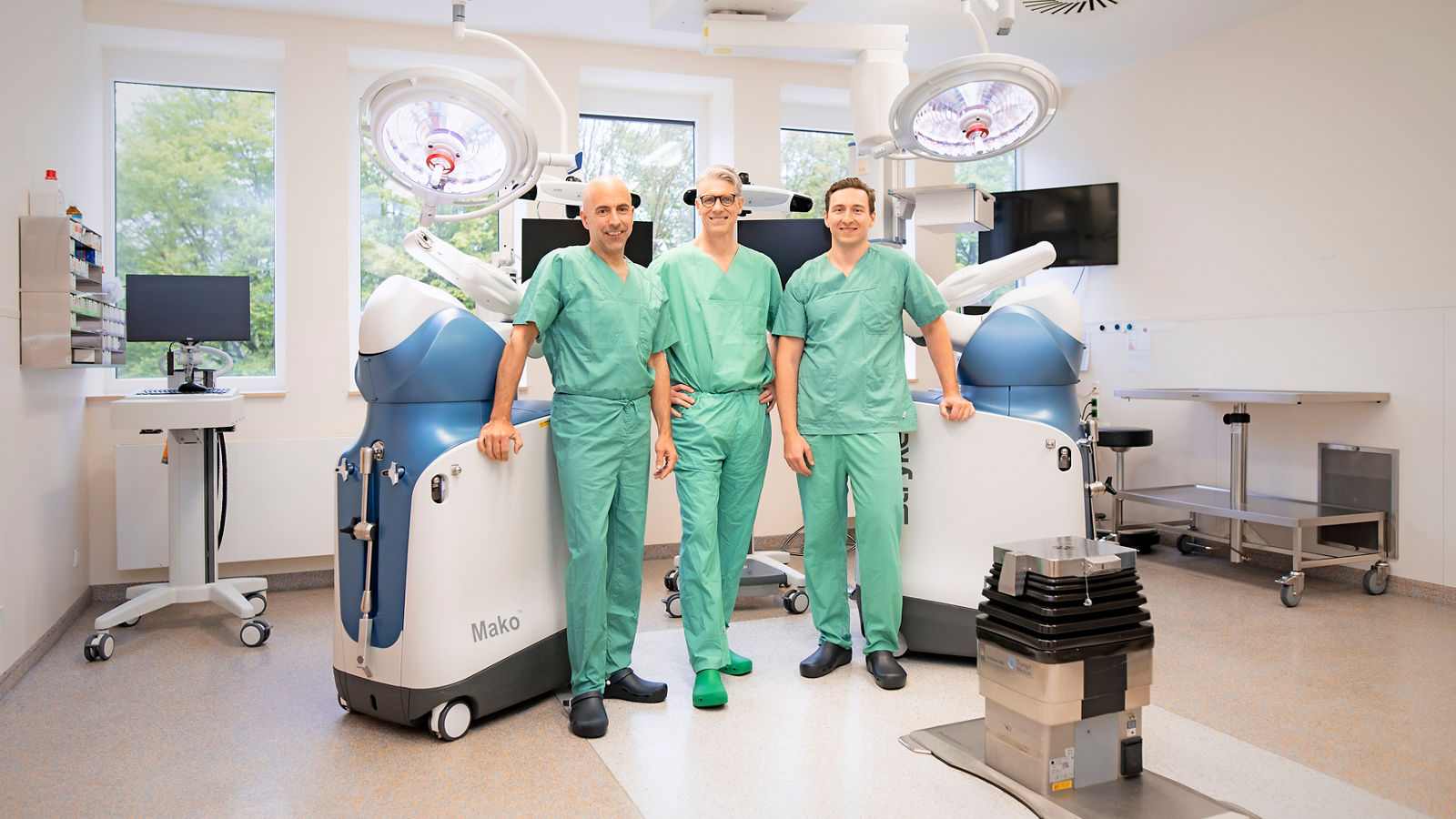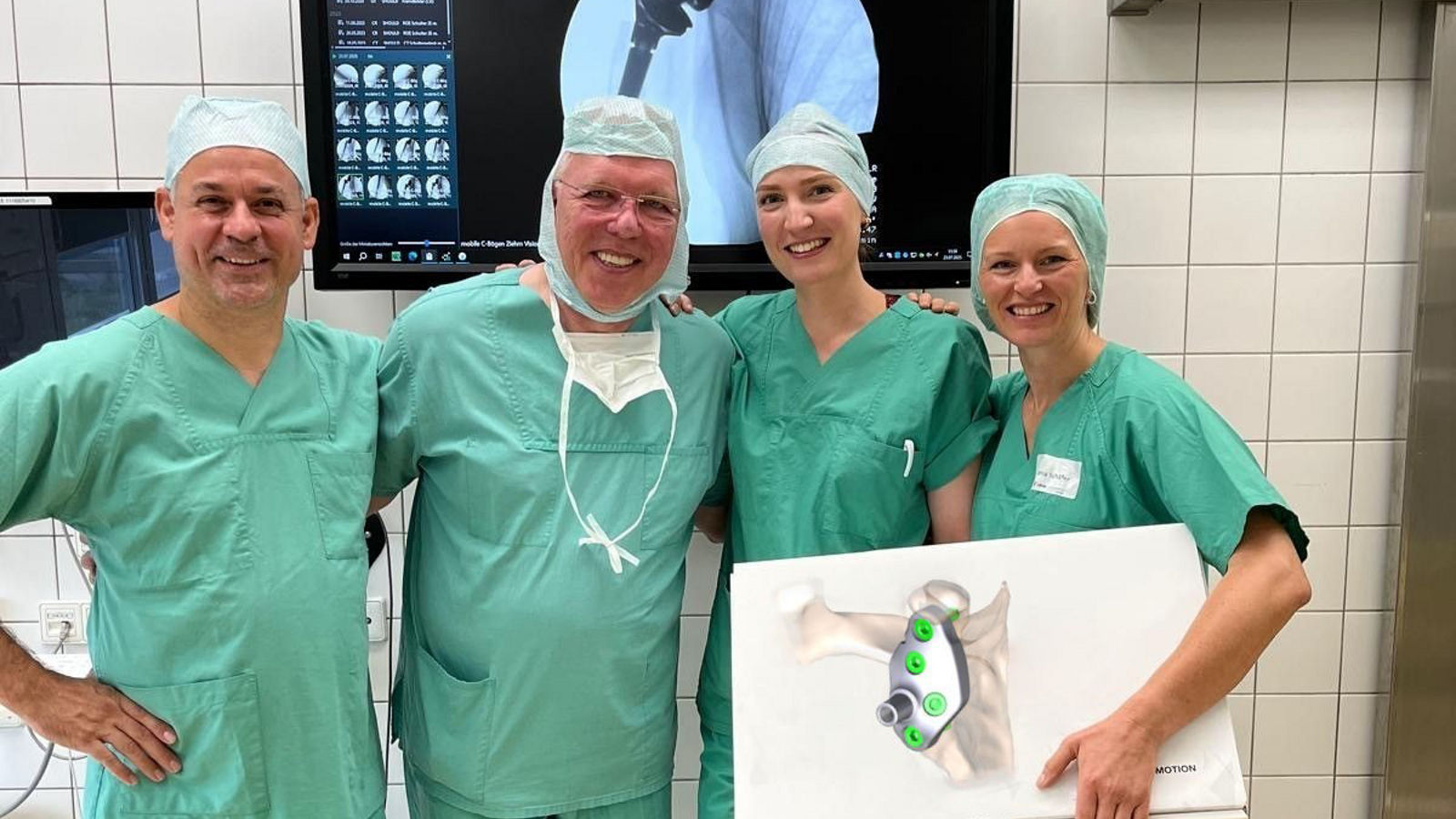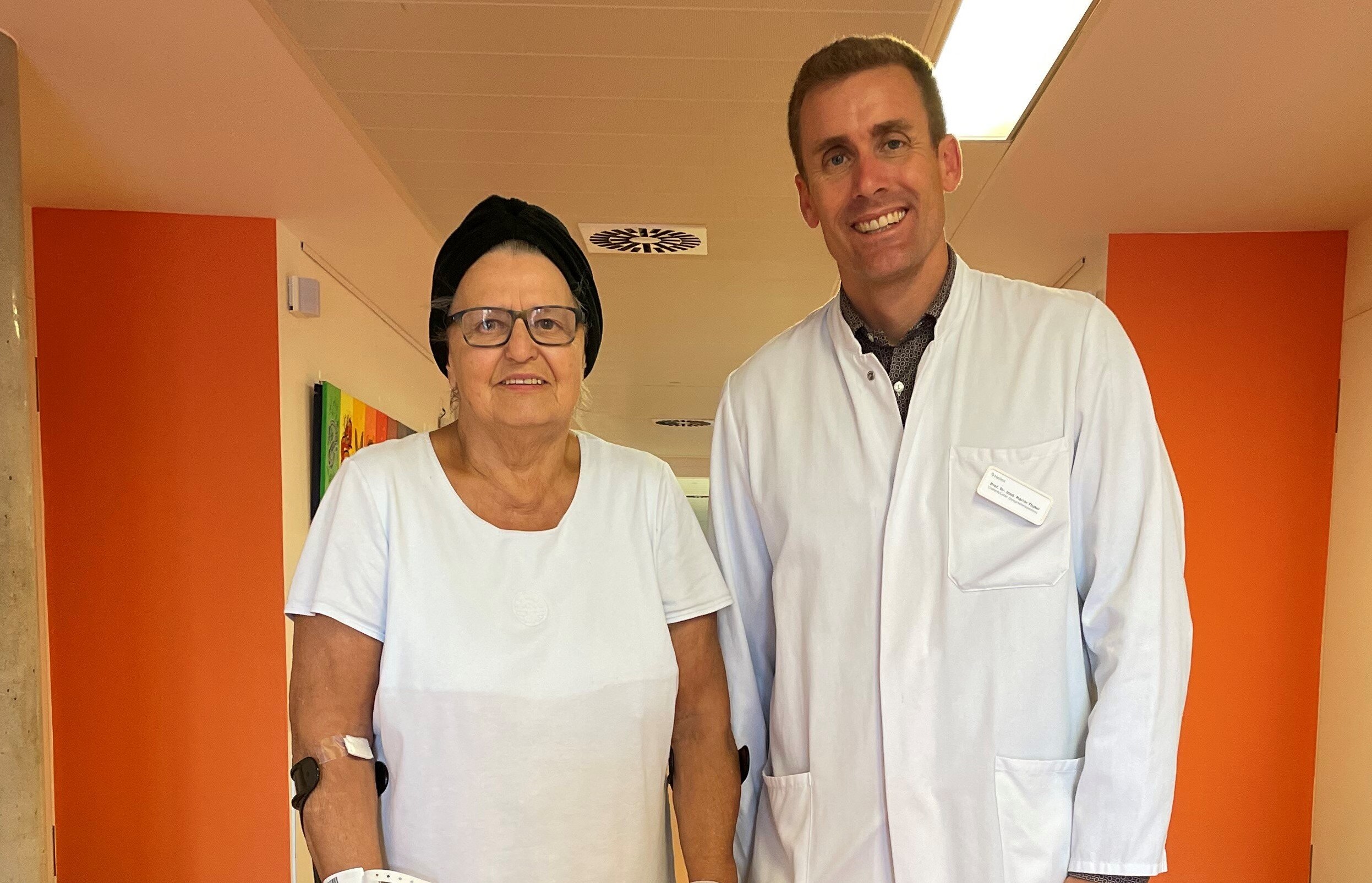
First robotic surgery at Helios Hospital München West
Three years ago, the Pasinger resident sought medical help from various sources. But because of the corona pandemic, she ultimately postponed treatment. It was her husband who now encouraged her to turn to the Endoprosthetics Center at Helios Hospital München West. "He heard about the new surgical procedure using robot technology that has recently been offered at the hospital in Pasing," the pensioner says. The conversation with head physician Assoz. Prof. Dr. Martin Thaler and the advantages of robotic arm-assisted surgery finally convinced her to have the procedure performed - as the first patient at Helios Hospital München West to undergo robotic joint surgery.
Gentle procedure and faster recovery
The endoprosthetics center there is one of only a few facilities in Germany to have what is known as Mako technology. "It makes it possible to position implants even more precisely with a precision of over 99.5 percent and to determine the optimal tension of the ligaments on the knee," Thaler explains. The goal, he says, is to get the implant as close as possible to the natural anatomy of the joint. "The ideal ligament tension is so important because it ensures the fine balance between required stability and high mobility of the knee," the chief physician continues.
In addition, the use of robotics means that the soft tissue of the knee can be spared and the procedure can be performed in a measurably more bone-saving manner, adds the joint specialist.
Our patients are back on their feet faster and with less pain after the operation. In addition, the highly precise placement of the prosthesis means that it can be expected to last longer.
Assoc. Prof. Dr. Martin Thaler, Head Physician of the Endoprosthetics Center at Helios Klinikum München West
This is how the robotic arm-assisted surgical system works
To achieve the high level of accuracy, a virtual 3D model is created before the operation based on a computer tomography of the knee joint. This is then used to create a digital surgical plan. "During the operation, I control the robotic arm in the predefined area. In the process, the boundaries set virtually in the plan prevent injury to the collateral ligament. Only when the knee joint is aligned and the ligament tension is adjusted to it is the knee prosthesis inserted," says Thaler.
In the process, the robot does not replace the surgeon, nor does it perform the operation on its own. "Rather, it lends us its precision and thus enables us to achieve the greatest possible accuracy in planning and execution," emphasizes the head of endoprosthetics, who is one of the most experienced surgeons in Europe and can look back on hundreds of operations using robotic arm technology.
Climbing stairs after just a few days
Ingrid Misslbeck's operation went well. Just a few days after the operation, she was able to climb stairs again for the first time - while still in hospital. The 75-year-old is satisfied with the results of the treatment - as well as with the medical care provided by the team led by head physician Martin Thaler. For Ingrid Misslbeck, an outpatient rehab program directly follows her stay in the hospital. This means she can be at home with her husband in the evenings and on weekends. She is already looking forward to her first bike ride with him and "a walk in the Pasing city park without pain.
Helios Hospital Munich West
Helios Hospital Munich West is a modern referral medical centre with 412 beds located in the Pasing District and the affiliated hospital of the Ludwig Maximilian University of Munich. The Hospital consists of the Central Emergency Department and 20 other referral departments and provides comprehensive assistance at academic level. Annually, about 24,000 inpatients and 31,000 outpatients rely on the experience and knowledge of about 950 employees. Besides quality medical care and assistance, they particularly appreciate short distances and private family-like setting.
Do you need more information about Helios Hospitals or want to schedule your treatment?

